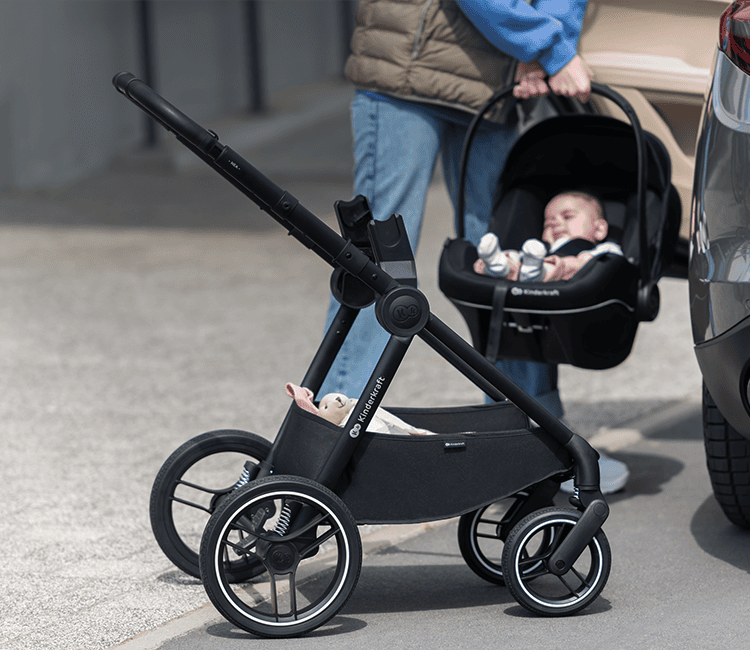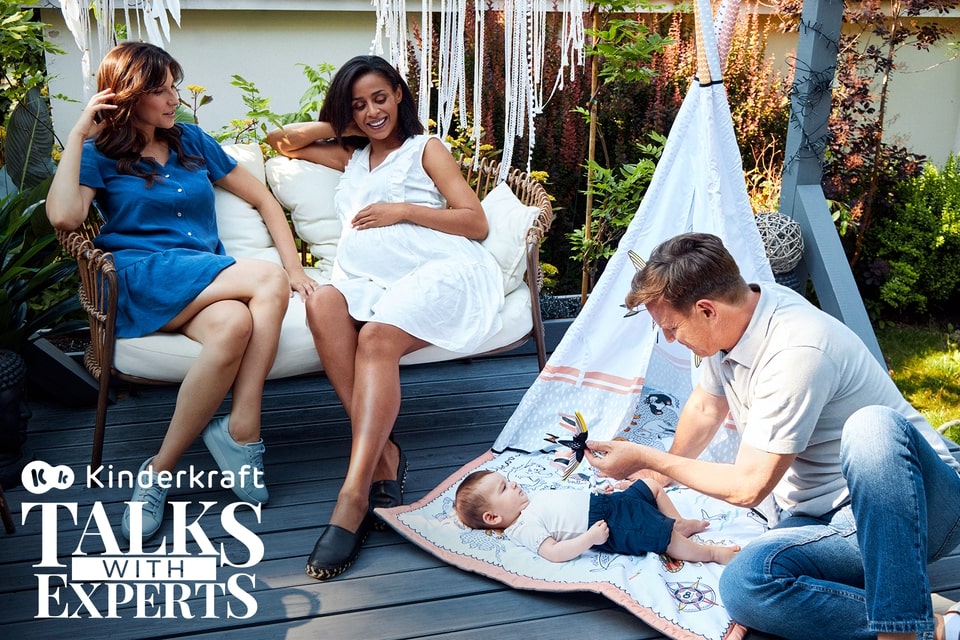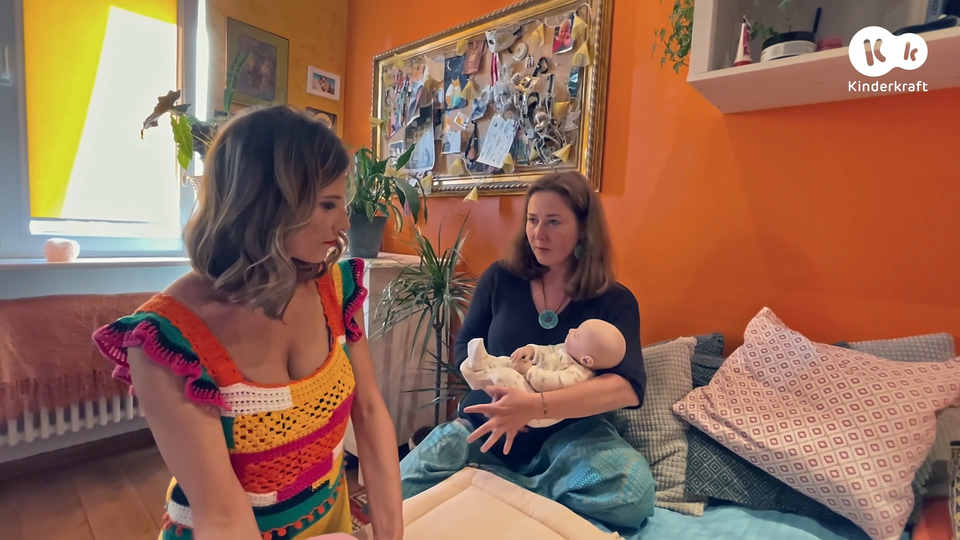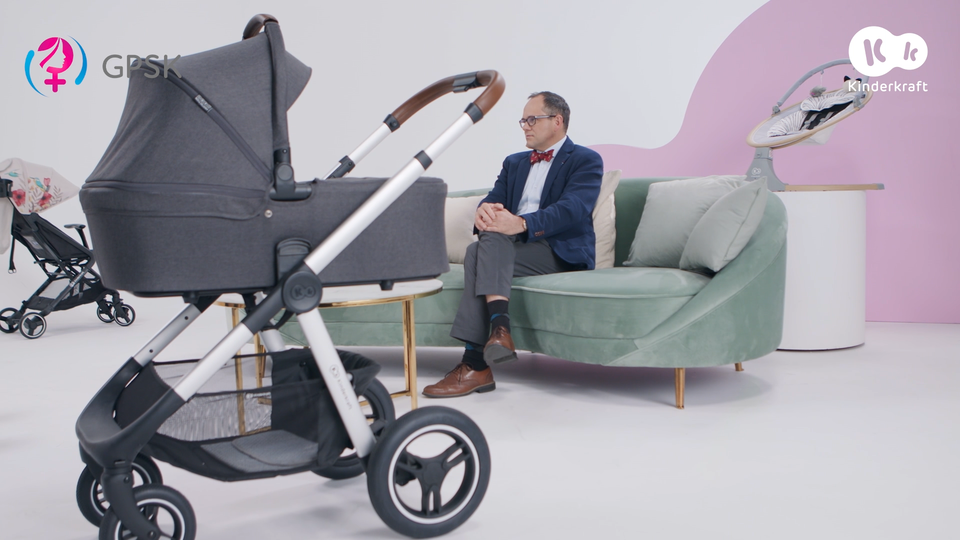Returning home with your newborn

It's happened – you're home! This is a big day – your first moments together at home. There'll be lots of emotions and fears. You'll have thoughts and questions, because, after all, newborns are so delicate. How can you correctly put your little one down without hurting them? And, most importantly, what can you expect in your first days with your new arrival? How can you make sure these first moments together are an amazing experience for everyone?
First moments together
The first moments at home with your baby can be terrifying. It's no wonder – all of them involve many new tasks, which you will attempt for the first time. Young parents often stress during this time. We'll tell you how to prepare for this, so that you can focus on your pride and joy.

First nappy change
Not every parent had the opportunity to change their little one's nappy at the hospital. If mum had a C-section or difficult labour, the midwives would have looked after the baby during the first days while at the hospital. That's why changing a nappy can be so stressful.
The first thing you need to do is check how to correctly lie your child down to protect their delicate head. For detailed instructions, watch Episode 6 of Talks with Experts: Parenting Made Easier on Facebook - coming soon!

What you need to do:
● correctly lie the baby down,
● gently remove the nappy,
● have a supply of wet wipes on hand, ideally with natural ingredients,
● have nappy rash cream,
● have fresh nappies.
You don't have to have a changing table at home, but it is very convenient – it's easier to clean if anything falls out while you're changing the nappy. Don't forget to buy disposable liners – they're just as handy (you won't have to clean the changing table as often).
Newborns have frequent bowel movements, although this can vary. In the beginning, babies' poop looks like tar, and you should have been told this at the hospital to stop you from worrying. You'll usually need to change six to eight nappies a day, although it can be less. This varies from baby to baby – if you're worried, contact a midwife or paediatrician.
Remember to be very careful when changing your little one's nappy because of their navel, which has to dry out. Don't forget to disinfect the wound, and always have clean hands when changing your baby's nappy!
The first walk
The first walk with your new arrival can be stressful, because you don't know how your baby will behave. Will they cry the entire time? Or perhaps they won't like the pushchair? When should you go for your first walk?
Luckily, most children sleep during walks. Remember that newborns sleep approximately 16 hours per day, so you don't have to worry. But to be certain, if you're still worried, take a walk close to home, so you can always come back if you need to.
Walks with a newborn are very important, irrespective of the weather (except for extreme heat, storms or snowstorms at low temperatures). Don't forget to dress your baby correctly. You can read more about this in our article: What should you dress babies and older children in for walks so they're not too hot?

Looking after a newborn
How to look after young children is a very broad topic. There's a lot of advice on the internet, which can leave your head spinning. Remember that the most important thing is minimalism and adapting to your child's individual needs.
For example, if your little one has cradle cap, you need to treat it with the right products. Or if their skin is dry, you need to buy special baby lotion, or even bath lotion. And if your youngster is otherwise fine, all you'll need is sunscreen, body lotion, baby soap, and nappy rash cream.
Babies should be moisturised after each bath. A nappy rash lotion should be applied after every nappy change, particularly in the first days of life when their skin is extremely sensitive to changes and chaffing. In the beginning, you don't need a brush, although, if your little one has hair, you can buy a small brush that's suitable for newborns (with soft bristles). You'll also need nail trimmers.
The "first times" with your baby
The first baths, walks and nappy changes don't have to be as terrifying as you may think. In Episode 6 of the series Talks with Experts: Parenting Made Easier, you'll find lots of advice and tips that'll help you de-stress and learn certain things – this will mean that your first moments with your baby will be amazing, stress free and without worries. Also check out the special episodes "Our First Weeks" and "Midwife Pip on the First Few Weeks at Home".
